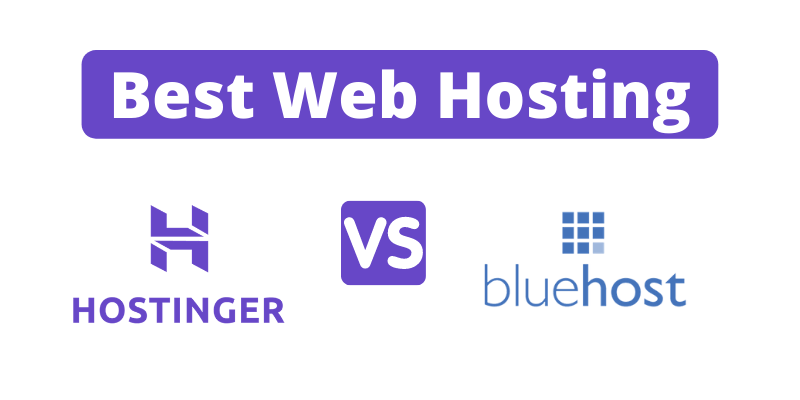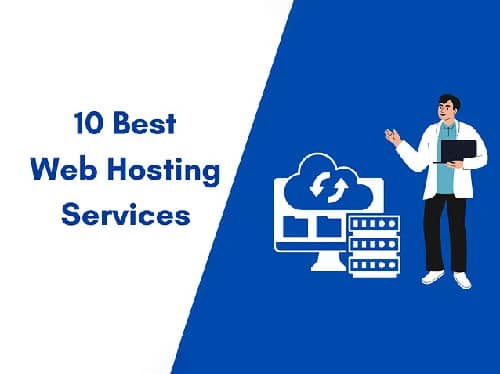Hostinger vs. Bluehost: The Battle for the Best Beginner-Friendly Host
When you're launching a new website, your hosting provider is the bedrock of your entire online presence. It affects your site's speed, security, and reliability—three factors that can determine whether a visitor becomes a loyal customer or clicks away forever. In the world of beginner-friendly hosting, two names dominate the conversation: Hostinger and Bluehost. Both promise affordability, ease of use, and the power to get your site online quickly. But which one truly delivers the best experience for website owners, developers, and small businesses? In this head-to-head showdown, we'll dissect their offerings on price, performance, ease of use, and support to declare a definitive winner for your needs.
Meet the Contenders: A Quick Introduction
Before we dive into the nitty-gritty details, let's get acquainted with our two competitors.
Bluehost: The Established Veteran
Founded in 2003, Bluehost is one of the oldest and most recognized names in web hosting. They are one of only three hosting providers officially recommended by WordPress.org, a massive endorsement that has made them a go-to choice for millions of WordPress users. Their brand is built on reliability, tradition, and deep integration with the world's most popular content management system.
Hostinger: The High-Performance Challenger
Hostinger entered the scene later but has made a massive impact by focusing on two things: aggressive pricing and cutting-edge technology. They've built a reputation for offering some of the most affordable hosting plans on the market without skimping on performance, largely thanks to their adoption of modern server technology like LiteSpeed. Hostinger targets budget-conscious users who still demand fast website hosting.
The Ultimate Showdown: Hostinger vs. Bluehost Compared

We'll compare these two giants across four critical categories that matter most to any website owner.
1. Pricing and Value for Money
For many small businesses and new website owners, the budget is a primary concern. But it's crucial to look beyond the flashy introductory price and consider the long-term cost.
Hostinger Pricing
- Introductory Price: Famous for its incredibly low entry-level prices, often starting around $2-$3 per month for a long-term commitment.
- Renewal Rates: Renewal rates are higher than the intro price but remain competitive, typically jumping to around $7-$10 per month for shared hosting.
- What's Included: Even the cheapest plans usually include a free SSL certificate, and premium plans add a free domain for the first year, weekly backups, and a generous number of email accounts.
Bluehost Pricing
- Introductory Price: Also offers attractive introductory deals, usually starting slightly higher than Hostinger, in the $3-$5 per month range.
- Renewal Rates: This is where Bluehost can be a shock. Renewal rates are significantly higher, often jumping to $10-$15 per month for a basic plan.
- What's Included: All plans come with a free SSL certificate and a free domain for the first year. However, essential features like automated backups are often pushed as paid add-ons (e.g., CodeGuard).
Verdict on Pricing: Hostinger
While both offer great initial deals, Hostinger provides better long-term value. Their renewal rates are more transparent and affordable, and they include more essential features like regular backups in their standard plans. For anyone seeking truly affordable hosting without nasty surprises, Hostinger has the clear edge.
2. Ease of Use and Control Panel
If you're not a seasoned developer, a complicated control panel can be a major roadblock. A user-friendly interface is essential for managing your files, emails, and domains.
Hostinger's hPanel
Hostinger has developed its own custom control panel called hPanel. It's designed with beginners in mind, featuring a clean, modern, and intuitive graphical interface. The icons are large and clearly labeled, making it easy to find what you need, whether it's installing WordPress, setting up an email account, or managing your files. For those new to web hosting, hPanel feels less intimidating than traditional control panels.
Bluehost's Custom cPanel
Bluehost uses a customized version of cPanel, the industry-standard control panel. They've built a user-friendly dashboard that sits on top of cPanel, simplifying common tasks like launching a new WordPress site. While the initial dashboard is clean, clicking into more advanced settings will take you to the classic cPanel interface, which is incredibly powerful but can be overwhelming for newcomers due to its sheer number of options.
Verdict on Ease of Use: Hostinger
This is a close call, but Hostinger's hPanel wins for its consistency and beginner-focused design. It guides the user through every step without exposing them to unnecessary complexity. Bluehost's solution is powerful, but the jump between its custom dashboard and the full cPanel can be jarring for a true beginner.
3. Performance and Site Speed
In 2024, site speed is not a luxury—it's a necessity. Slow loading times hurt your user experience and your SEO rankings. This is where server technology makes a huge difference.
Hostinger's Performance Stack
Hostinger's key advantage is its use of LiteSpeed Web Servers across all its shared hosting plans. LiteSpeed is a high-performance replacement for the older Apache web server (which many hosts, including Bluehost, still use). When paired with the free LiteSpeed Cache for WordPress plugin, it delivers significantly faster loading times right out of the box. This focus on modern technology gives Hostinger a serious performance edge, making it a top choice for fast website hosting.
Bluehost's Performance Stack
Bluehost primarily uses a combination of Apache and Nginx web servers. While reliable and robust, this technology is generally considered slower than LiteSpeed, especially for dynamic content like WordPress sites. Bluehost does offer a built-in caching tool and CDN integration to help improve speeds, but the underlying server technology isn't as optimized for performance as Hostinger's.
Verdict on Performance: Hostinger
There's no contest here. Hostinger's investment in LiteSpeed servers provides a measurable advantage in site speed. For any business where website performance is a priority (which should be every business), Hostinger is the superior choice.
4. Customer Support
When your website goes down or you hit a technical snag, you need fast, reliable help. The quality of customer support can be a deal-breaker.
Hostinger Support
- Channels: 24/7 live chat and a ticket/email system. They do not offer phone support.
- Quality: Generally, their live chat support is quick to respond. The agents are knowledgeable, but complex issues might require some patience. They also have an extensive knowledge base with tutorials and guides.
Bluehost Support
- Channels: 24/7 live chat and phone support. The availability of phone support is a major plus for users who prefer to talk through issues with a real person.
- Quality: Bluehost's support quality has received mixed reviews over the years. While having phone support is great, wait times can sometimes be long, and the experience can be inconsistent depending on the agent you get.
Verdict on Support: Bluehost
Despite some inconsistencies, Bluehost takes this category simply by offering 24/7 phone support. For many small business owners, the ability to pick up the phone and speak to a human is a critical feature that Hostinger lacks. If direct phone access is a must-have for you, Bluehost is the winner.
The Final Verdict: Who Should You Choose?
Both Hostinger and Bluehost are excellent choices for beginners, but they cater to slightly different priorities. Your decision should be based on what you value most.
Choose Hostinger if:
- Your budget is your top priority. You want the most affordable hosting both initially and upon renewal.
- Site speed and performance are non-negotiable. You want the fastest possible website out of the box thanks to LiteSpeed technology.
- You prefer a modern, streamlined user interface. You're a true beginner and want a control panel (hPanel) that won't overwhelm you.
Choose Bluehost if:
- You want the official WordPress.org recommendation. You value the deep integration and trust that comes with their endorsement.
- You absolutely must have phone support. You want the peace of mind that comes with being able to call someone for help 24/7.
- You prefer the industry-standard cPanel. You're a developer or webmaster who is already familiar with cPanel and wants its power and flexibility.
Overall, for the majority of new users, especially small businesses looking for the best performance-to-price ratio, Hostinger emerges as the winner in 2024. Its superior performance, better long-term value, and incredibly user-friendly interface make it the ideal platform to build and grow a successful online presence.
-
Hostinger Review 2025: Is It Still the Undisputed King of Budget Hosting?
-
Bluehost Review 2025: Is It Still the Best for WordPress Beginners?
Now that you've seen the head-to-head comparison, we want to hear from you. Have you used Hostinger or Bluehost? What was your experience like? Share your thoughts and insights in the comments below! Your feedback could be the deciding factor for another website owner making this crucial choice.
















